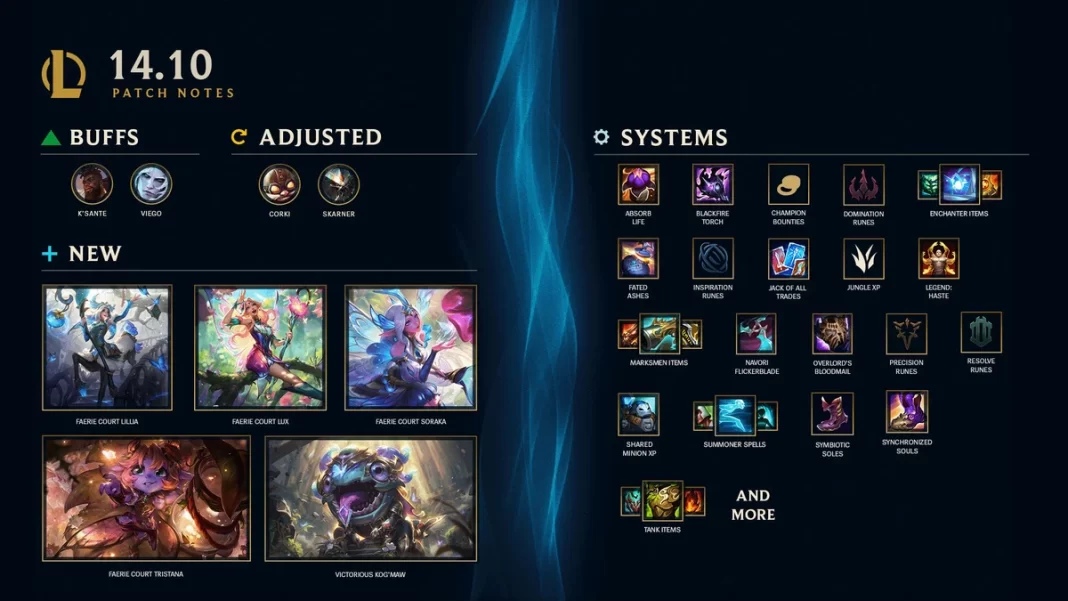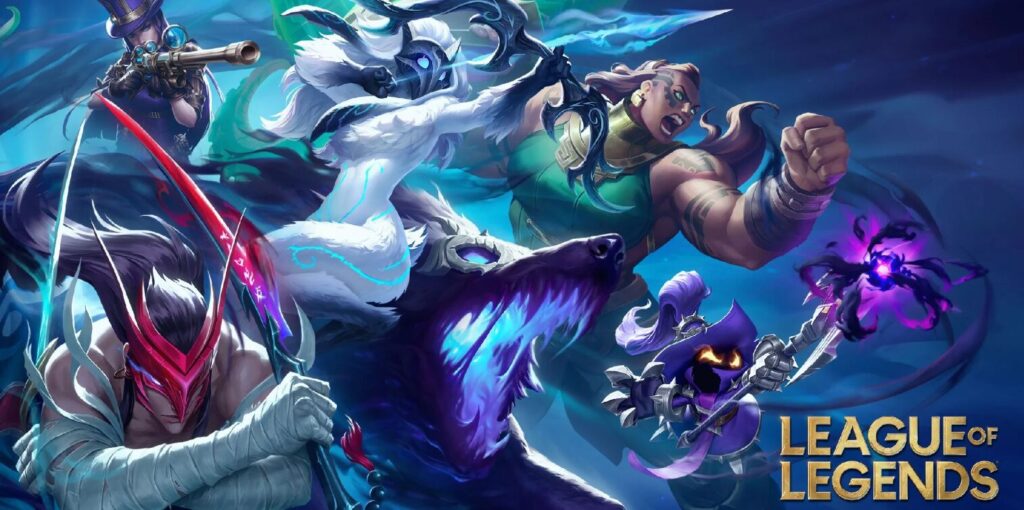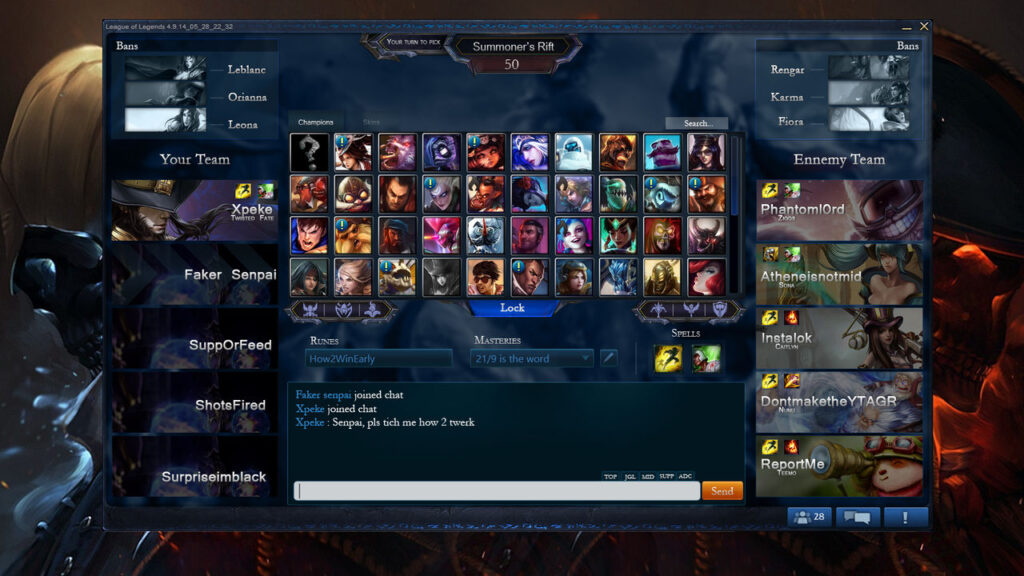Riot Games has implemented a significant change to the League of Legends ranked play experience with the release of Patch 14.15.
In a move aimed at enhancing the competitiveness and integrity of the game’s ranked ladder, the developer has introduced a new requirement for players seeking to participate in ranked matches.
Prior to this update, players were able to jump straight into ranked play once they reached the required level. However, Riot has now mandated that aspiring ranked competitors must first complete a set number of unranked matches on the classic Summoner’s Rift map before they can queue up for ranked games. This new prerequisite is a departure from the previous system and is sure to have a notable impact on the League of Legends player experience.
Riot’s decision to implement this change is likely driven by a desire to ensure that players have a more comprehensive understanding of the game’s fundamentals before entering the higher-stakes ranked environment. The massively popular MOBA from Riot Games is renowned for its diverse array of gameplay modes, offering players a plethora of ways to enjoy the League of Legends experience.
Alongside the traditional 5v5 matches on Summoner’s Rift, the game features a variety of alternative modes that cater to different playstyles and preferences.
One such mode is ARAM, or “All Random All Mid,” which randomizes champion selections and confines the action to a single-lane map. Another popular option is Arena, which offers a faster-paced League of Legends experience with 2v2 duels between teams.
These modes have become beloved parts of the League ecosystem, allowing players to experiment with different champions and strategies outside of the ranked grind. However, with the introduction of the new ranked play requirement, Riot seems intent on ensuring that players have a solid grasp of the core Summoner’s Rift gameplay before diving into the more competitive ranked ladder.
The hope is that this will lead to more prepared and competent teammates in ranked matches, ultimately improving the overall experience for all participants. While some players may be initially frustrated by the additional hurdle to accessing ranked play, Riot’s decision is likely driven by a desire to maintain the health and integrity of League of Legends’ competitive ecosystem.
By requiring a base level of unranked experience, the developer aims to cultivate a more informed and skilled player base within the ranked mode, potentially reducing the prevalence of issues such as toxicity, trolling, and poor teamwork. It’s a bold move by Riot, but one that could pay dividends in the long run for the game’s most passionate competitors.
As the League of Legends community navigates this new ranked play requirement, it will be interesting to see how the change impacts the overall experience and the competitive landscape of the game.
League of Legends Rolling Out New Restrictions for Ranked Play
Riot Games’ recent changes to the League of Legends ranked system go beyond simply requiring new players to complete a set number of unranked matches before accessing the competitive queue.
According to Lead Gameplay Designer Matt “Phroxzon” Leung-Harrison, another key driver behind this decision was the prevalence of “smurf accounts” – experienced players creating new accounts to play at lower skill levels and dominate less skilled opponents.
Leung-Harrison acknowledged that the goal of this new requirement is to place these smurf accounts at a more appropriate skill level, rather than allowing them to start low and “stomp everyone on their way up.”
This should help create a more balanced and enjoyable experience for players of all skill levels in the ranked queue. Additionally, the post referenced the issue of account selling and sharing, noting that Riot’s “Vanguard” anti-cheat system will be leveraged to crack down on such offenses.
By addressing these problematic behaviors, the developer hopes to enhance the overall integrity and competitiveness of the ranked ladder. These changes come at a pivotal time for the League of Legends franchise, as Riot Games continues to expand the IP with new spinoff projects.
Earlier this year, the studio officially revealed the in-development League of Legends fighting game “2XKO,” with plans for a beta test in 2024 and a full release in 2025.
Riot Games has also confirmed that it will be “resetting development” on the upcoming League of Legends MMORPG, suggesting that fans will have to wait several years for the game’s eventual launch.
As the League of Legends universe continues to grow, the updates to the ranked queue aim to strengthen the core competitive experience of the original game. By addressing issues like smurf accounts and account manipulation, Riot hopes to create a more balanced and enjoyable ranked environment for all players, ultimately benefiting the entire League of Legends community.
The introduction of the new requirement for 10 unranked matches before accessing the ranked queue is a bold move by Riot Games, one that is likely to have a significant impact on the competitive landscape.
While some players may view it as an unnecessary hurdle, the developer’s goal is to ensure that participants have a solid grasp of the game’s mechanics and strategies before diving into the more intense and high-stakes environment of the ranked ladder.
This change is particularly important in light of the ongoing issues surrounding toxicity, trolling, and poor teamwork that can sometimes plague the competitive queue. By ensuring that players have a better baseline understanding of the game, Riot hopes to reduce the prevalence of these disruptive behaviors and create a more positive and rewarding experience for all competitors.
Moreover, the new restrictions on smurf accounts and account manipulation are crucial for maintaining the integrity and fairness of the ranked system. Experienced players creating alternate accounts to dominate lower-skilled opponents not only undermines the competitive nature of the queue but can also be incredibly frustrating and demoralizing for newer players.
By cracking down on these practices, Riot is taking a significant step towards ensuring that the ranked ladder is a true test of skill and strategy, rather than a platform for exploitation and unfair advantage. As the League of Legends community continues to evolve and expand, the updates to the ranked queue will likely have far-reaching consequences.
The success of these changes will be measured not only in the immediate reactions of players but also in the long-term impact on the overall health and competitiveness of the game’s most prestigious game mode.
While there may be some initial resistance or frustration from players who are accustomed to the old system, Riot’s commitment to fostering a more informed and skilled ranked player base is a clear indication of their dedication to the continued growth and success of the League of Legends franchise.
As the developer navigates the delicate balance between accessibility and competitive integrity, the community will be watching with keen interest to see how these changes unfold. Ultimately, the new requirements for the ranked queue represent a bold and necessary step in the ongoing evolution of League of Legends.
By addressing the challenges of smurf accounts, account manipulation, and player preparedness, Riot is demonstrating a clear vision for the future of the game’s competitive ecosystem – one that prioritizes fairness, skill, and the overall enjoyment of the player base. As the League of Legends universe continues to expand, these updates to the ranked system will play a crucial role in ensuring that the game’s core competitive experience remains a cornerstone of the franchise for years to come.
(VPEsports)


























